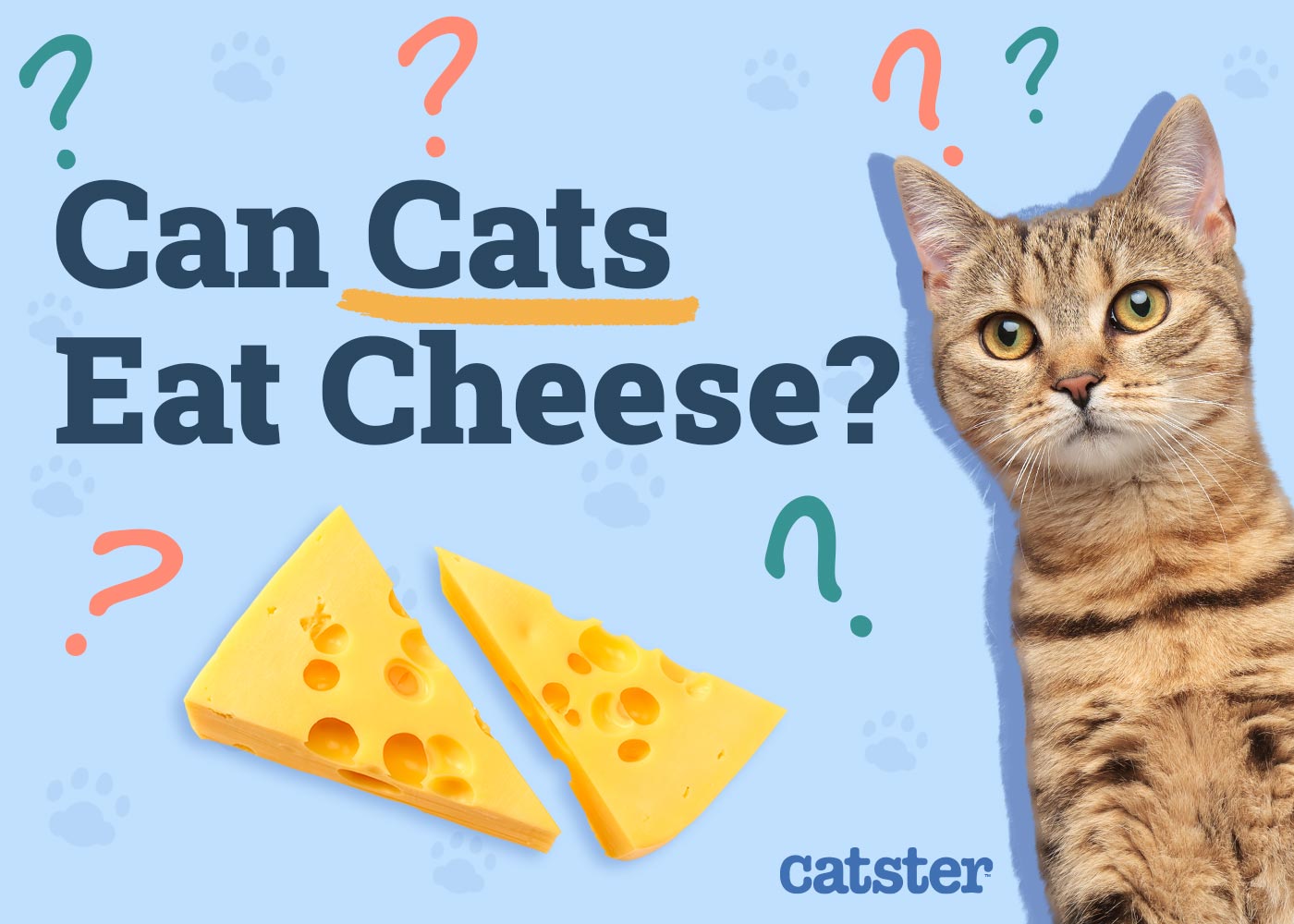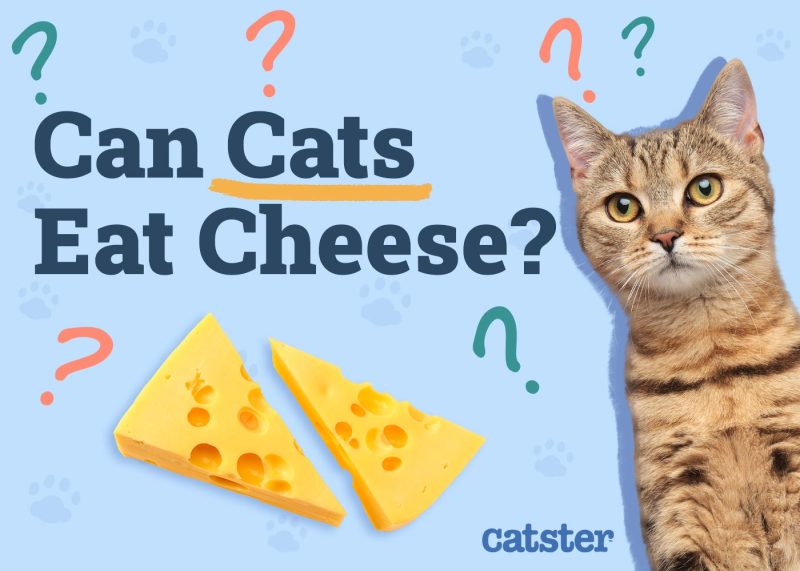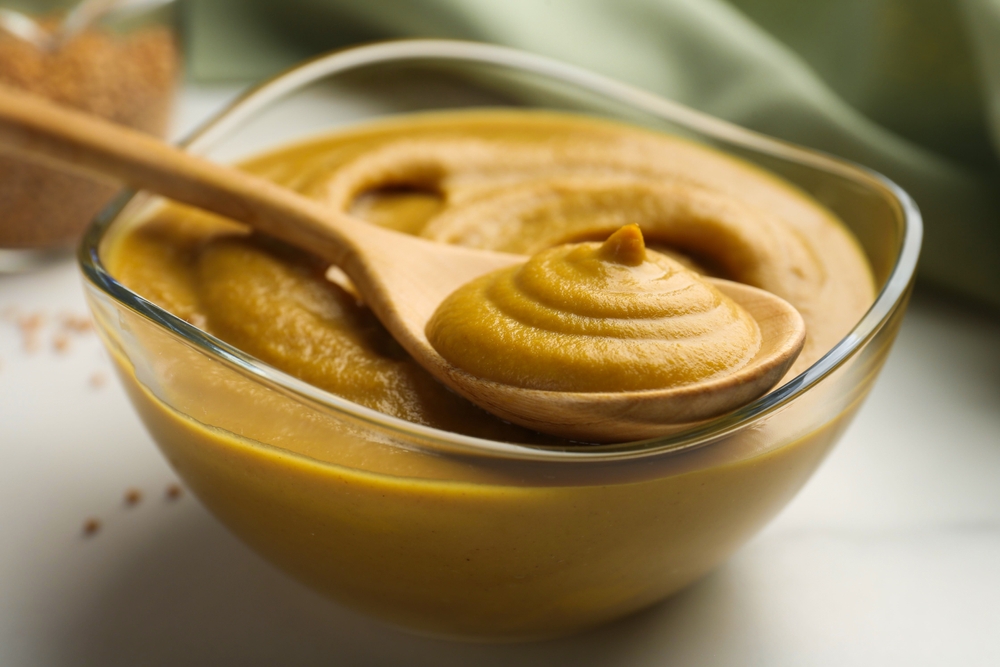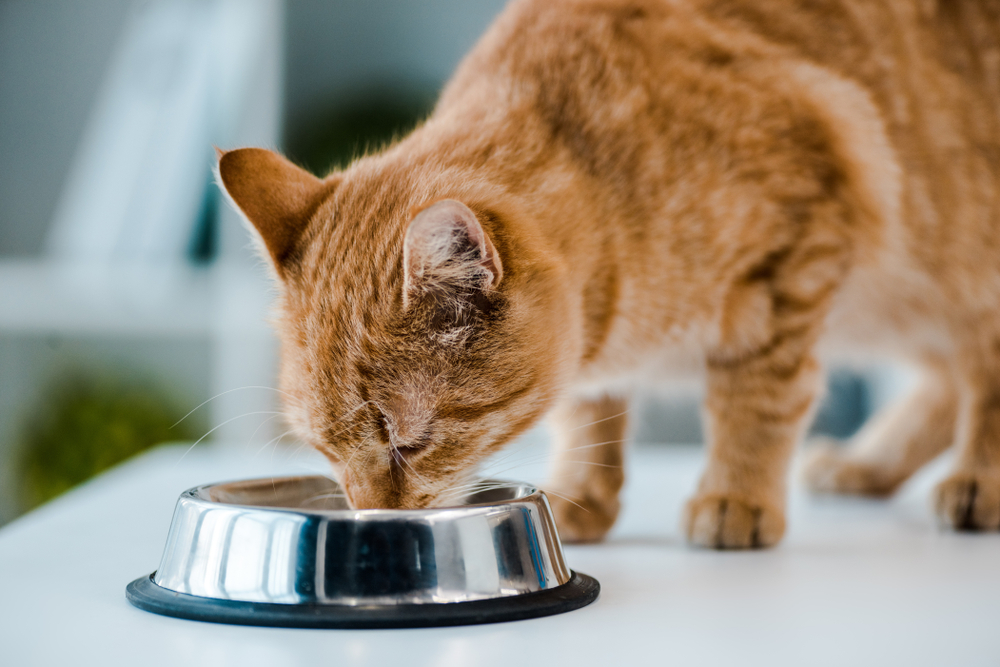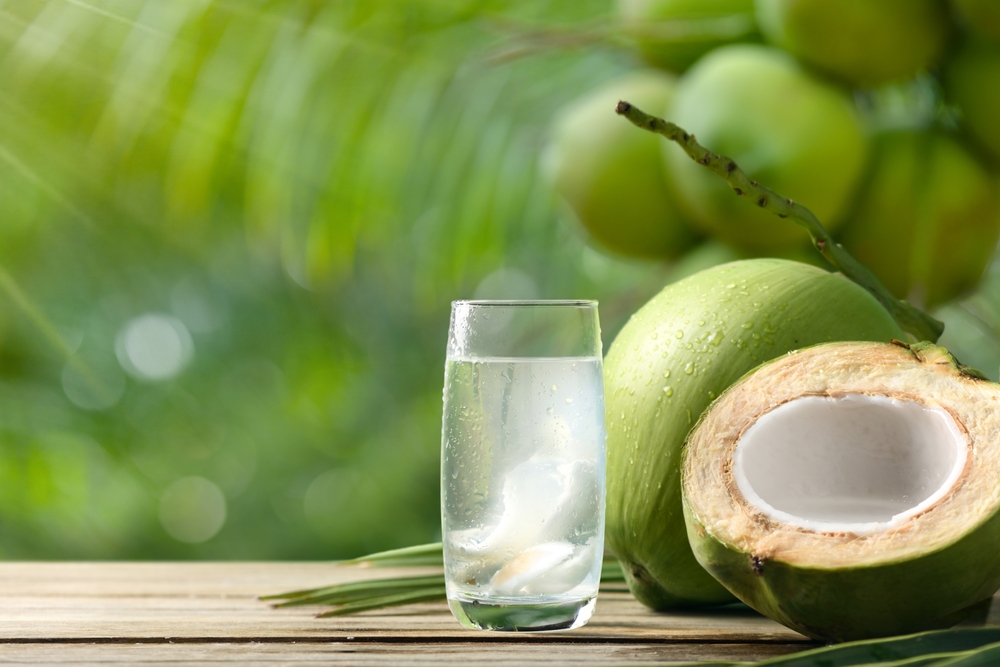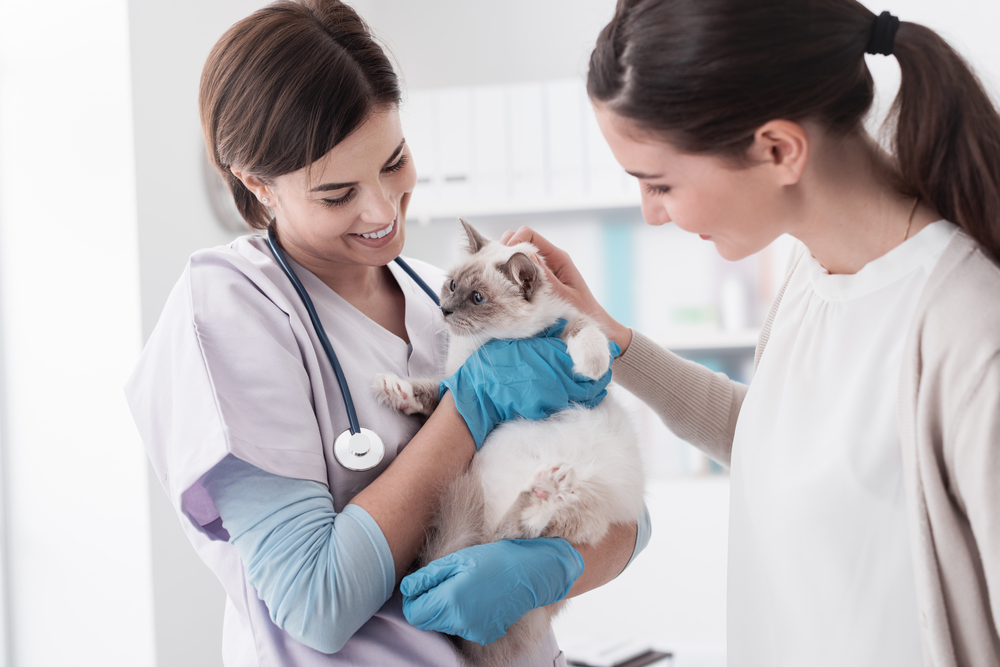Cheese is a food long associated with being a feline favorite, and while cheese isn’t toxic to cats, various ingredients within it, primarily the dairy content, are not good or healthy for cats and may instigate problems.
A small piece, ideally the size of a dice, is all that should be offered as a rare treat or, better yet, keep cheese as a reserve tactic for when you need to hide and administer medication.
Cats are known as obligate carnivores, meaning they must eat primarily animal protein. So, a complete feline diet and water are all they need to receive their required daily nutrition, and not feeding them a feline-specific diet can have severe consequences.
Treats for your kitty, like cheese, should only make up around 10% of their daily calorie intake 1. However, we all want to offer our fluffy friends a snack they enjoy, and it’s hard to turn them down when they’re so interested in the cheese on your plate.
It is thought that the fat and protein content of cheese is why cats love a little (or a lot!) of it rather than the diary contained in it being the magnet. So, if it isn’t toxic, why isn’t it good for them?

Why Is Cheese Bad for Cats?
Dairy is the main culprit, with salt and fat hot on its tail. Lactose is one cause for concern. Cats have great difficulty digesting dairy products due to the presence of lactose (a type of sugar found in milk). By the time a kitten is around 3 months old, the body’s ability to break down lactose is lost. Therefore most, but not all, adult cats are actually lactose intolerant and are unable to digest any dairy products properly.
A lactose-intolerant cat will endure digestive upsets. Your cat may also be allergic to dairy, so even a small amount of cheese is harmful to them. For those cats who are not affected by lactose, they can tolerate small amounts of cheese, but it is not recommended in excess.
Salt is also a problem for cats and is found in high quantities in many cheeses, particularly in certain varieties. The high salt amounts can impact a cat’s health considerably, and while the salt levels are safe for humans, they affect cats more due to their small size.
Another ingredient found in high amounts of cheese is fat. Your cat can be at risk of weight gain and obesity if fed cheese long term. For those pets on a low-fat diet due to either excess weight or a medical condition like pancreatitis, avoid offering cheese and follow your veterinarian’s guidance.
The onset of signs displayed by your cat that they may have lactose intolerances or dairy allergies usually occurs within a few hours. If you notice any of the following signs or are concerned at all, speak to your veterinarian for advice or have them check over your cat.

Signs of Lactose Intolerance in Cats
- Vomiting
- Diarrhea
- Gas
- Nausea
Signs of Dairy Allergies in Cats
- Vomiting
- Diarrhea
- Gas
- Itching
- Red and scaly skin patches
- Hair loss
What Are the Best Cheeses to Feed My Cat?
If cheese is to be given as an occasional treat, then the harder varieties are better suited as they contain less lactose, although the salt and fat content are still high. Examples include cheddar, swiss, and parmesan.
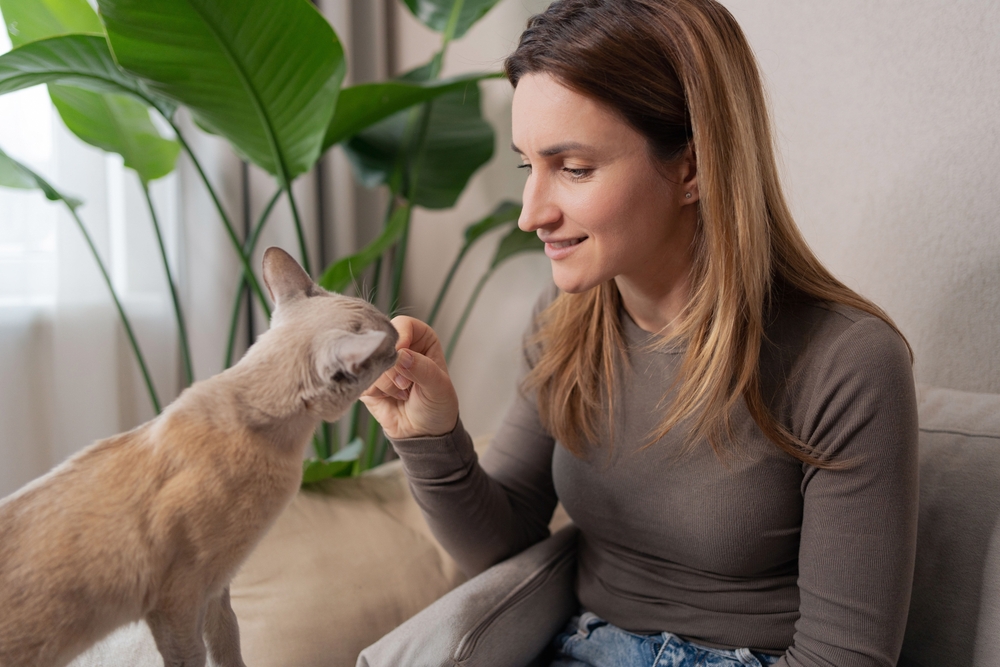

Can I Feed My Cat Vegan Cheese?
Not really. Sorry! This isn’t a sneaky way around the issue. Vegan or non-dairy cheese does not contain lactose; however, the salt and fat content are still very high. The same theory towards dairy cheese applies to vegan cheese: only a little here and there.
Any questions, concerns, or confusion regarding your cat’s diet and treats are best directed to your veterinarian. They will be able to tell you quickly whether your cat is on the correct diet and if cheese is allowed.
Featured Image Credit: Lysikova Irina, Shutterstock

